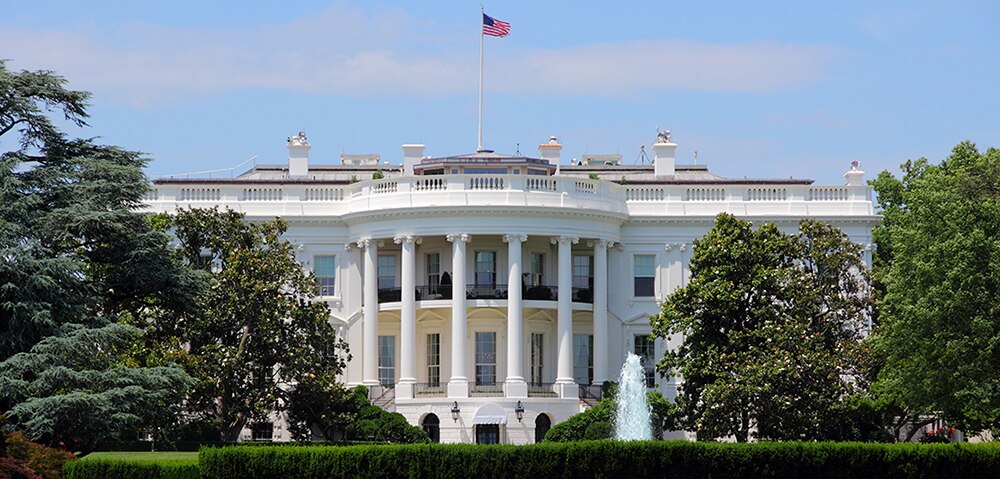Key Questions: Should Investors Dump Their Stocks After a Disappointing Debate?

The Key Wealth Institute is a team of highly experienced professionals representing various disciplines within wealth management who are dedicated to delivering timely insights and practical advice. From strategies designed to better manage your wealth, to guidance to help you better understand the world impacting your wealth, Key Wealth Institute provides proactive insights needed to navigate your financial journey.
Let me begin by stating that by characterizing last week’s presidential debate as "disappointing", I am referring to both candidates who appeared on stage; in my own opinion, neither offered a clear and convincing case to lead our great country. Insults overtook any discussion about issues, and both digressed into making claims about their golf handicap, hardly a barometer with which to determine who is best suited to lead the most powerful country in the world.
That said, one candidate clearly had a rougher night of the two, something recognized by nearly everyone on all sides of political spectrum. Stated more directly, President Biden struggled to address concerns about his age and acuity. According to a CBS News poll conducted June 28–29, 2024, more than 70% of registered voters who were surveyed believe he lacks the mental health needed to serve as president, up from 65% prior to the debate. Notably, in this same poll, 49% of respondents surveyed thought former President Trump lacks the mental health to serve.1
Calls for Biden to exit the race have surfaced, mainly by political pundits and members of the press. The president’s fellow politicians and party leaders have, on the other hand, stood by him and publicly conveyed their support. Importantly, the choice to stay or go rests solely with the President.
With Biden’s lackluster showing, Trump’s odds of winning the presidency have increased to nearly 60%2, according to Predictit.org. Moreover, Trump’s legal challenges are far from being resolved, including, most notably, his sentencing date on September 18.
Because both candidates may face uncertainties regarding their respective nominations, it is worth noting that procedures and rules exist to navigate various scenarios should a candidate be unwilling or unable to fulfil his/her nomination prior to Election Day. A bigger wild card is a situation whereby no candidate secures the necessary 270 Electoral College votes on November 5th. We will address this if it becomes necessary in due course.
For now, amidst the fog of uncertainty thickening, it is important to revisit our overarching views on elections and markets’ gyrations around them. These are as follows:
Economies make presidents; presidents don’t make economies. Said another way, what happens with inflation, employment, the business cycle, and human ingenuity will influence markets far more than one candidate versus another.
During an election year, market volatility tends to increase during the summer and remains elevated through October before fading in November once the outcome is known. In other words: markets crave clarity.
Near-term market activity suggests a larger fiscal impulse – and possibly a larger inflationary push from a Trump administration versus a Biden administration, but “obvious” politically focused sector/industry calls are often wrong.
More specifically, since the debate, interest rates have risen, possibly under the assumption that a Trump presidency would be marked by a greater fiscal impulse due, in part, to decisions involving tariffs, regulation and immigration. This trend may well persist. However, should the economic slowdown we described in our mid-year update3 unfold, interest rates may reverse.
Similarly, according to Invesco, during the 2016–2020 Trump administration, clean energy stocks outperformed oil and gas stocks. During the Biden administration, however, the opposite has been true. Such market moves are counterintuitive to what one might expect given the candidates’ views on energy policy and are proof that markets are driven by forces beyond partisan politics and rhetoric.
Irrespective of which party occupies the White House, the range of market returns has generally been similar, and stocks have historically done well under both parties.
In closing, we advise investors remain Neutral to Risk, emphasize Quality, incorporate New Tools to achieve enhanced diversification, and develop (and then implement!) a plan when volatility increases.
Best wishes for a peaceful and enjoyable holiday. If we can be of any assistance or answer any questions you might have, please do not hesitate to contact your Financial Advisor.
For more information, please contact your advisor.